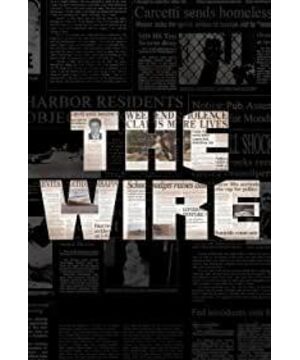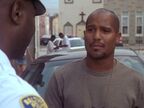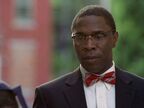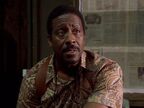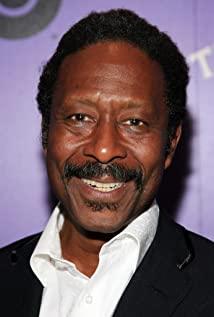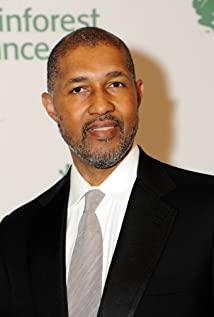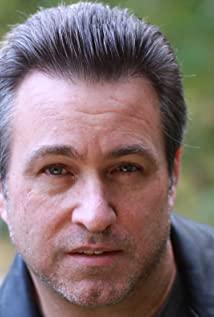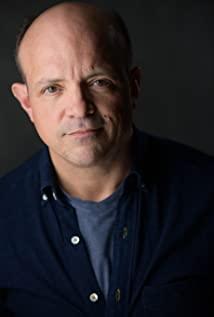"The Wire," Simon often says, is a show about how cont
emporary American society—and, particularly, “raw, unencumbered capitalism”—devalues human beings. (Stealing Life-The crusader behind “The Wire.”, The New Yorker, 22/10/2007)
I don't need to say how great Thre Wire is. It can last for a long time because the central proposition it discusses still bothers us today. On the surface, it is a police movie, but after watching it, I found that it is an anatomy of Baltimore and even modern society (Anatomy). In modern society, people have become part of a huge social machine. Everyone is under the pressure of the huge social structure, and individual values are ignored and buried. I fell in love after the first scan, so I wrote some notes in the hope of finding like-minded friends.
Each season of The Wire focuses on different classes. The first season focuses on the struggle between the police and the gangsters, as well as the struggle under the entire social structure.
The fragmented American dream
If freedom is the core of the American dream, director David Simon criticized the American dream at the beginning of the series. At the beginning of the film, detective Jimmy McNulty is investigating the murder of a gangster named SnotBoogie. Although this case has nothing to do with the subsequent story, it sets the tone for the theme of the drama. Among them, his dialogue with a small gangster is very intriguing.
The main point of the conversation is that the gangsters will play dice every Friday night, and Snotboogie will leave every time he wins. Their solution was to beat him up, but they would still let him play with him next time. McNulty found it strange, and asked the little bastard if SnotBoogie would leave every time he wins, why would he still let him play? The gangster said the classic line: "No way, this is America, man."
I try to divide this conversation into several angles of analysis.
1) Freedom to twist. The United States is a place of freedom, and everyone should be allowed to do what they want. Under the influence of this ideology, the gangster believes that Snot's freedom to play dice should not be violated, so even if Snot wins and runs away every time, they will still let him play together. The punks obviously did not think of the question of justice, that is, is there any loophole in the system itself? Should changes be made? This leads to my second opinion.
2) The game. "All in the game." This is the most frequently heard words in the play. The game has many levels of meaning. The superficial meaning here is the dice game, and the deeper meaning is the social structure, which refers to the political, economic, cultural and life circles formed by people of different classes. Street corner culture, black culture, and grassroots culture together constitute the life of the gangster, and also mold his way of thinking.
Everyone is deeply affected by the environment in which they live. In this game, people will win and lose, but no one can leave. As David Simon said: "The game never ends." The little gangster saw Snot as cunning. Acts are taken for granted. McNulty, who lives in another class, thinks this is unfair, and questions this. The two classes don't understand each other, so facing McNulty's interrogation, the gangsters didn't know why.
3) Ineffective policing. In this conversation, we also see that McNulty, as a policeman, has only a superficial understanding of people from another class, The Corner. The police need to contact them often, but they don't understand their culture and life. In later episodes, we will see that the policy of the Baltimore Police Department is only to catch small gangsters, never understand the other side of the city, and have no intention of catching gang bosses, everything is only numerically beautiful. The gangster looked at the corpse that was open in the street, but it wasn't the same thing. This kind of numb feeling is the best proof of the failure of policing. In the third season, Bunny, the Director of Narcotics Enforcement Division, also raised relevant questions to Carver and raised the importance of understanding the community. This will be discussed later.
In a nutshell, the opening of the film brings out the American dream, and even what David Simon calls "the decline of the American empire."
Intricate relationship between characters
The first episode is mainly to give the audience an overview of the main characters in the story. The main content is that McNulty saw in a lawsuit how the Barksdale family of gangsters won the murder lawsuit by manipulating witnesses. In a secret conversation with McNulty, Judge Phelan learned that the Barksdale family is a powerful drug cartel in the Western District in recent years and has caused at least ten murders. However, no one from the police investigated this, so he pressured the police to set up a task force. The target in this episode is naturally the Barksdale family.
However, the police only want to make a quick decision, and they are powerless to investigate this kind of massive manpower and material resources.
In the first episode, there are so many characters that are difficult to identify. A hierarchical map can give us a more systematic understanding of the relationship between the roles and the hierarchical structure of the police and the gang.
The police
Deputy Director
Burrell was pressured by Phelan in the first episode, so he asked the Homicide Division and Narcotics Division to deploy their own personnel to form a task force, which was led by Lieutenant Cedric Daniels. Burrell asked Daniels to solve the case within a month. In fact, he did not want the case to affect his career and reduce the burden on the police.
Crime Squad
The Major Crime Unit is managed by the Sheriff (Major) Rawls and is affiliated to the CID (Criminal Investigation Division). Under the pressure of his boss, Burrell, he was forced to dispatch personnel to investigate cases that were otherwise invisible, which also made him hate McNulty.
Jay Landsman is the team leader, he also only hopes to meet the needs of his boss as much as possible. In his squad, there are not only outstanding agents such as McNulty and Bunk, but also mediocre people like Cole.
McNulty can be said to be the initiator of the entire investigation. As a police detective, he sneered at the bureaucracy in the police station. Had it not been for his excellent case-handling ability, he might have been fired a long time ago.
McNulty is also an unstoppable man. In order to investigate the Barksdale group, he even went to the FBI's friends for assistance, but because the focus of the FBI's case has shifted to terrorist organizations and political black gold after 9/11, he was unable to proceed with the investigation. It is said that during the filming of the first episode, the Twin Towers had just fallen. At that time, the FBI's investigation direction had not changed, but the production group accurately predicted the FBI's turn.
Finally, McNulty learned about the new technology of monitoring during this visit and hoped to investigate the gang in this way.
Bunk, who often has a cigar in his mouth, is also a member of the crime team, and he also has excellent ability to handle cases. But compared to McNulty, he is more disciplined and will not act like stepping on steel wires. At best, it's just shooting mice. Therefore, he will certainly work hard to investigate the case, but he will not initiate the incident on his own initiative. The differences between the two will be clearer in the next fifth season.
Anti-drug team
The anti-narcotics group is managed by Raymond Foerster and is also affiliated with CID. Like other management, only because the boss requested an investigation, they focused on setting up a team.
Daniels is a police inspector in the anti-narcotics group, young and promising, and has a law degree from the University of Baltimore. He not only knows how to manage his subordinates, but also know how to properly handle the orders of his superiors. The attention paid to him can be seen from the deputy director’s request to manage the investigation team. Although they are both commanders of the squad, Daniels’ title is Lieutenant, which is higher than Jay (the title of Sergeant) of the crime team. His subordinates are Kima, Herc and Carver.
Kima, Herc, and Carver are all under Daniels and have different personalities. Kima values intelligence and works meticulously. In the first car anti-drug case, the main intelligence was an informant from Kima. The lovely Bubbles is also an important informant for Kima in the West End. As for Herc and Carver, they seem to like to get pleasure from catching and beating.
Gangster
(to be continued...)
View more about The Wire reviews


